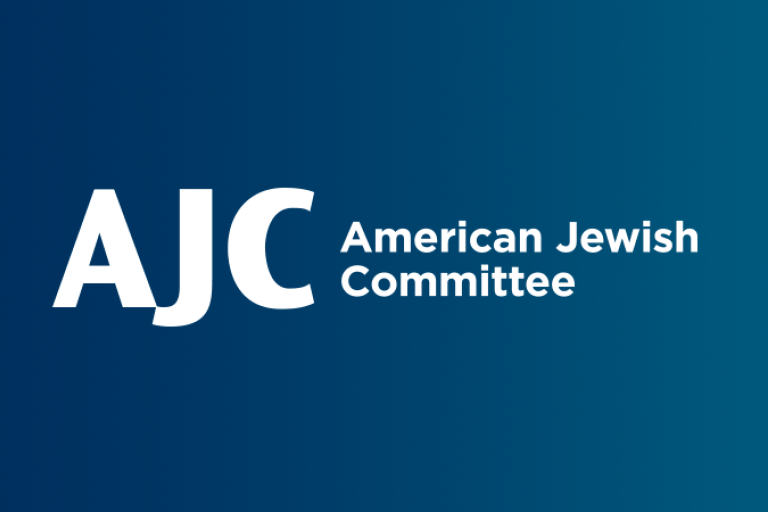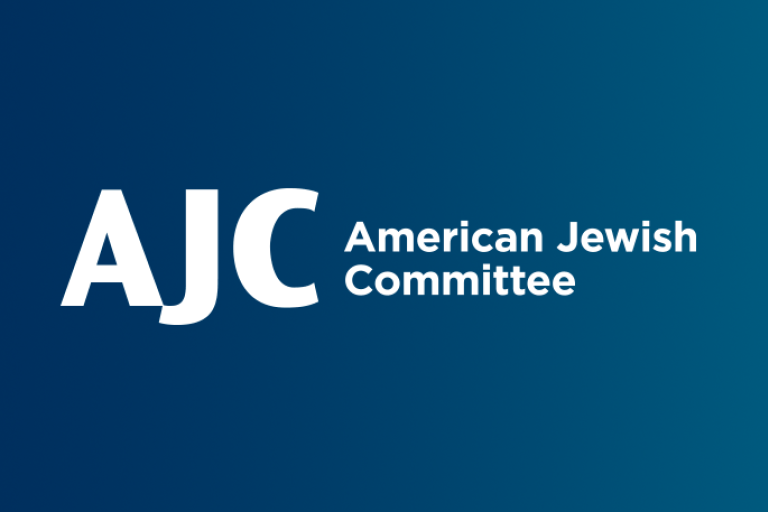September 6, 2021 — Jerusalem, Israel
This piece originally appeared in Newsweek.
Last week, the FBI released its 2020 hate crime data, revealing that hate crimes targeting Jews accounted for 54.9 percent of all reported crimes motivated by hatred of the victims' religion. (This number has been updated to reflect new information.) Struck by that statistic, I tweeted it out, noting that American Jews make up less than two percent of the U.S. population—evidence of the massive overrepresentation of Jews among the victims of religious bias crimes in America.
The tweet blew up.
In the days since I sent that tweet, it has been retweeted and shared thousands of times, including by several individuals with hundreds of thousands or even millions of followers, from media figures like Jake Tapper and Bari Weiss to celebrities like Amy Schumer, Mandy Moore and Sophia Bush. I've received messages from friends and acquaintances around the world—both Jewish and non-Jewish—telling me that their Instagram feeds are full of images of my tweet.
I get the appeal. There's some real shock value to that statistic and it seems to neatly convey the gravity of antisemitism in America.
But it's too simple, too easy. And antisemitism is anything but simple or easy.
Politicians, pundits and other opinion leaders regularly denounce "antisemitism," often loudly and forcefully. It's easy to do and carries no social, political or personal cost. In fact, condemning some vague, amorphous, undefined version of antisemitism can be a handy way of virtue signaling, of projecting moral superiority. After all, who could possibly support something that generates such reflexive revulsion?
But dig a little deeper, get into the weeds of modern-day antisemitism, and things get a bit... stickier.
That's because antisemitism doesn't just look like black-uniformed SS thugs marching in unison, the soles of their boots thundering through European streets—or angry young men carrying tiki torches and shouting "Jews will not replace us." It's not just swastikas daubed on synagogues, windows smashed in Hillel Jewish student centers or tombstones toppled in Jewish cemeteries.
Antisemitism also comes in the form of rallies that display the Israeli flag side-by-side with the flag of Nazi Germany and compare Gaza to the Warsaw Ghetto. It appears in the halls of international bodies and the chambers of student government, where Israel—a liberal democracy, however imperfect—is singled out for opprobrium time and time again while the world's worst human rights abusers go without even passing mention. It reveals itself in demands that Jewish students renounce their connections to Israel, that academics pledge not to work with Israeli colleagues and that candidates for elected office commit not to visit the Jewish state. It manifests in grotesque media distortions of Israeli actions and a disproportionate focus on measures that, if taken by any other Western military, would be met with silent understanding. And it is apparent in social media posts railing against "Zionists"—either as code for Jews or in reference to those, Jewish and non-Jewish, who believe in the Jewish right to self-determination—and denouncing Zionism as racist, colonialist or akin to Nazism.
When a member of Congress shares a tweet bearing the slogan "From the river to the sea, Palestine will be free"—a reference to Israel's destruction and replacement with a Palestinian state—American Jews smell antisemitism: 85 percent say denying Israel's right to exist is antisemitic.
When another member of Congress tweets "It's all about the Benjamins, baby" in reference to criticism of her hostility to Israel, American Jews smell antisemitism: 84 percent say the claim that the United States only supports Israel because of Jewish money is antisemitic.
When the same lawmaker, responding to the outrage over her attribution of American support for Israel to Jewish financial clout, alludes to "the political influence in this country" pushing for "allegiance to a foreign country," American Jews smell antisemitism: 76 percent say the notion that American Jews are more loyal to Israel than to America is antisemitic.
These expressions of antisemitism—coming not from the Right but from the Left—consistently prove more difficult to condemn.
When that last incident, in which a member of Congress insinuated that American Jews are disloyal to America, erupted back in 2019, the U.S. House of Representatives hemmed and hawed for several days before adopting a mealy-mouthed resolution referencing prejudice against "African Americans, Latinos, Native Americans, Asian Americans and Pacific Islanders and other people of color, Jews, Muslims, Hindus, Sikhs, the LGBTQ community, immigrants, and others." The resolution never once mentioned the antisemitic comments or the legislator who made them.
Jewish members of Congress were incredulous. "Why are we unable to singularly condemn antisemitism?" said Representative Ted Deutch, a Democrat from Florida, on the House floor. "Why can't we call it antisemitism and show that we've learned the lessons of history?"
When demonstrations during the May escalation between Israel and Hamas devolved into antisemitic hate fests, replete with explicitly antisemitic chants and imagery—and occasionally spawning physical attacks on identifiable Jews—they were met with a deafening silence. There were no marches against antisemitism, no campaigns against Jew-hatred, no celebrity outcries.
All too often we assume that only one form of antisemitism—that coming from neo-Nazis, white supremacists and others on the far Right—is worthy of broad condemnation. But it is the antisemitism of the hard Left that is most present in the lives of many American Jews, particularly in schools, on college campuses and on certain social media platforms. It is the antisemitism of the hard Left that seeks to threaten and intimidate American Jews into concealing or shedding fundamental parts of their Jewish identity. And it is the antisemitism of the hard Left that tries to force American Jews—the vast majority of whom identify with the Left—to choose between their Jewish and liberal values.
To condemn antisemitism only when politically expedient is to miss the point entirely. Antisemitism must be opposed wherever and whenever it occurs, regardless of the background, ideology or politics of those who promote it. Pointing fingers across party lines is easy, as are sweeping condemnations of "hatred" that eschew specifics. It is far more difficult to root out the hate festering within one's own political camp, to name and shame those who perpetuate Jew-hatred while espousing values you hold dear. But uncomfortable as it is, painful as it might be, that is precisely what has to happen if any effort to combat antisemitism is to succeed.
So, thank you for sharing my tweet. I appreciate it. Now pay attention to what Jews are telling you about antisemitism—and do something about it.
Avi Mayer is the Managing Director of Public Affairs and Senior Spokesperson at the American Jewish Committee (AJC).



